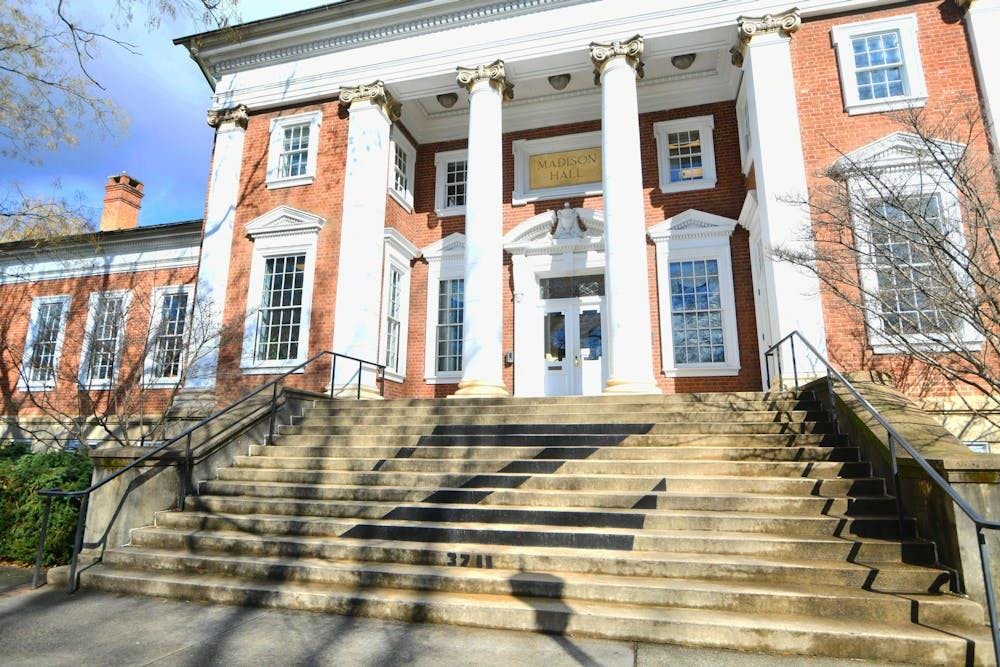The Sept. 4, 2025 op-ed by “5 U.Va. Community Members” about my Aug. 15, 2025 open letter to Interim President Paul Mahoney is a disturbing exercise in gaslighting.
Most notably, the 5 never say a word about what anti-discrimination law actually is. The first point I made in my open letter, and the only point I made about DEI, was that “Unfortunately, as almost everyone probably knows, the University likely violated anti-discrimination law and stonewalled the Department of Justice during former University President Jim Ryan’s DEI-fueled presidency. Ryan resigned because of it.” To his credit, Interim President Mahoney reminded U.Va.'s Faculty Senate on Sept. 5, 2025 that “Compliance with federal law is a condition of research grants.”
I know that many members of the University community do not want to hear it, but the “federal law” that both Mahoney and I are referencing is this: except for a few narrow exceptions that do not apply to today’s U.Va. (for example, taking race into account in a remedy for adjudged discrimination against people of color by the defendant in a lawsuit), it is illegal to consider race, gender, ethnicity or other protected traits in employment and admissions decisions — even a little bit, and even if people think it would make U.Va. “better,” to quote my recent critics, to do so. See Students for Fair Admissions v. Harvard University & North Carolina, 600 U.S. 181 (2023) (companion cases); 42 U.S.C. §2000d, et seq. (Title VI) and 42 U.S.C. §2000e(2), et seq. (Title VII). Indeed, because U.Va. is a public university, it is constitutionally barred from doing so.
Additionally, the 2025 U.S. Supreme Court decision Ames v. Ohio Department of Youth Services signals that proponents of DEI should stop pretending they are complying with the law. After all, one of the most liberal members of the Supreme Court, Justice Ketanji Brown Jackson, wrote in an opinion for a unanimous — yes, unanimous — Court that the “background circumstances” rule imposed by several lower courts of appeal requiring members of a majority group to satisfy a heightened evidentiary standard to prevail on a Title VII discrimination claim is inconsistent with the text of Title VII and the Court’s anti-discrimination precedents.
Justice Jackson quoted the text of Title VII that makes it illegal to take an adverse employment action against “any individual.” She further quoted a 2020 Supreme Court decision, Bostock v. Clayton County, that held that the “law’s focus on individuals rather than groups [is] anything but academic.” She added, “By establishing the same protections for every ‘individual’ — without regard to that individual’s membership in a minority or majority group — Congress left no room for courts to impose special requirements on majority-group plaintiffs alone.”
I will close with one additional point — the 5 U.Va. Community Members ignore the three non-DEI subjects I asked Interim President Mahoney to address: first, U.Va.’s apparent violations of the private inurement prohibition of the Internal Revenue Code, especially with respect to the astronomical salary Ryan will receive when he returns to the faculty; second, the need to hire more conservatives and libertarians for the faculty so students are educated rather than indoctrinated; and third, the importance of holding accountable the University decision-makers who put U.Va. in the extreme legal peril it currently faces. The tax law issue — yes, I again mention law — is especially time sensitive because it threatens U.Va.’s tax-exempt status at a time when the Trump administration is vigorously investigating the University.
I mention this because I, too, love U.Va.
Scott Douglas Gerber received his Ph.D. and J.D. from the University. He can be reached at scottdouglasgerber@gmail.com
The opinions expressed in this guest column are not necessarily those of The Cavalier Daily. Guest columns represent the views of the authors alone.







